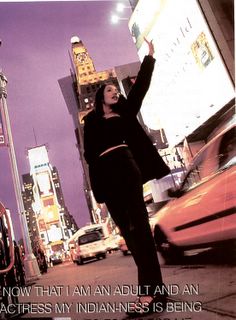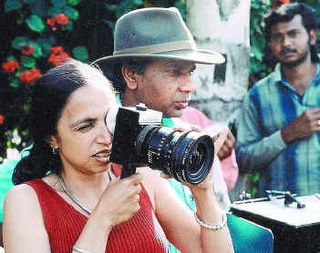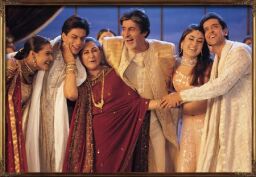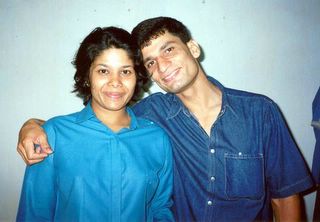As I research, I come across a lot of academicians working on "Bollywood" and the "Indian Diaspora". I am going to try and put up lists on the blog for benefit of other research scholars. If you know of other researchers interested in similar themes please email me.
Fareed Kazmi is Reader in the Department of Political Science, University of Allahabad. His book is titled - The Politics of India's Conventional Cinema : Imaging a Universe, Subverting a Multiverse.
Prof.
Madhava Prasad, Central Institute of English and Foreign Languages. His book is titled -
Ideology of the Hindi Film
A Historical Construction.
Ashish Rajadhyaksha is a Senior Fellow of the
Centre for the Study of Culture & Society (CSCS), Bangalore, and was the editor, with Paul Willemen, of the
Encyclopaedia of Indian Cinema.
Aswin Punathambekar is a master's student in the department of comparative media studies at the Massachusetts Institute of Technology.
Tejaswini Ganti is another Indian American scholar who has been conducting research about the Bombay film industry since 1996.
Professor
Jigna Desai's book Beyond Bollywood: The Cultural Politics of South Asian Diasporic Film (Routledge, January 2004) focuses on the emergence and formation of a South Asian diasporic cinema by examining films made by Indians who have emigrated to Canada, Great Britain, and the United States, as well as films produced in India.
Monika Mehta is a Chancellor's Postdoctoral Fellow at University of California at Berkeley, affiliated with Film Studies and Comparative Literature. She received her Ph.D. in Comparative Literature from the University of Minnesota. At Berkeley, she is working on her book project, "Selections: Cutting, Classifying, and Certifying in Bombay Cinema," which focuses on censorship of sex in Bombay cinema.
Nitin Govil is Assistant Professor of Sociology and Media Studies at the University of Virginia. He joined the department in Fall 2003 and has completed his doctoral work in film and media studies at New York University. Govil is the co-author of Global Hollywood and is completing a study The Indian Film Industry, with Ranjani Mazumdar, under contract at British Film Institute.
Priya Joshi is Associate Professor of English at the University of California, Berkeley. Joshi is currently at work on a book-length project entitled Crime and Punishment: Nationalism and Public Fantasy in Bollywood Cinema in which she studies popular Hindi film and the fabrication of national identities in postcolonial India.
Raman Johal, at the University of Guelph in Ontario, Canada, is completing a dissertation entitled "From Bollywood to Bharat: Identity and Ethnic Revival in the Youth of Diasporic India."
Professor
Phillip Lutgendorf at the University of Iowa.
Ananda Mitra (Ph.D., University of Illinois at Urbana Champaign) is Associate Professor in the Department of Communication, Wake Forest University.He is the author of three books: Television and Popular Culture in India (Sage Publications, 1993), India through the Western Lens (Sage Publications, 1999) and Research Methods in Park, Recreation and Leisure Services (Sagamore Publishing, 2000).













